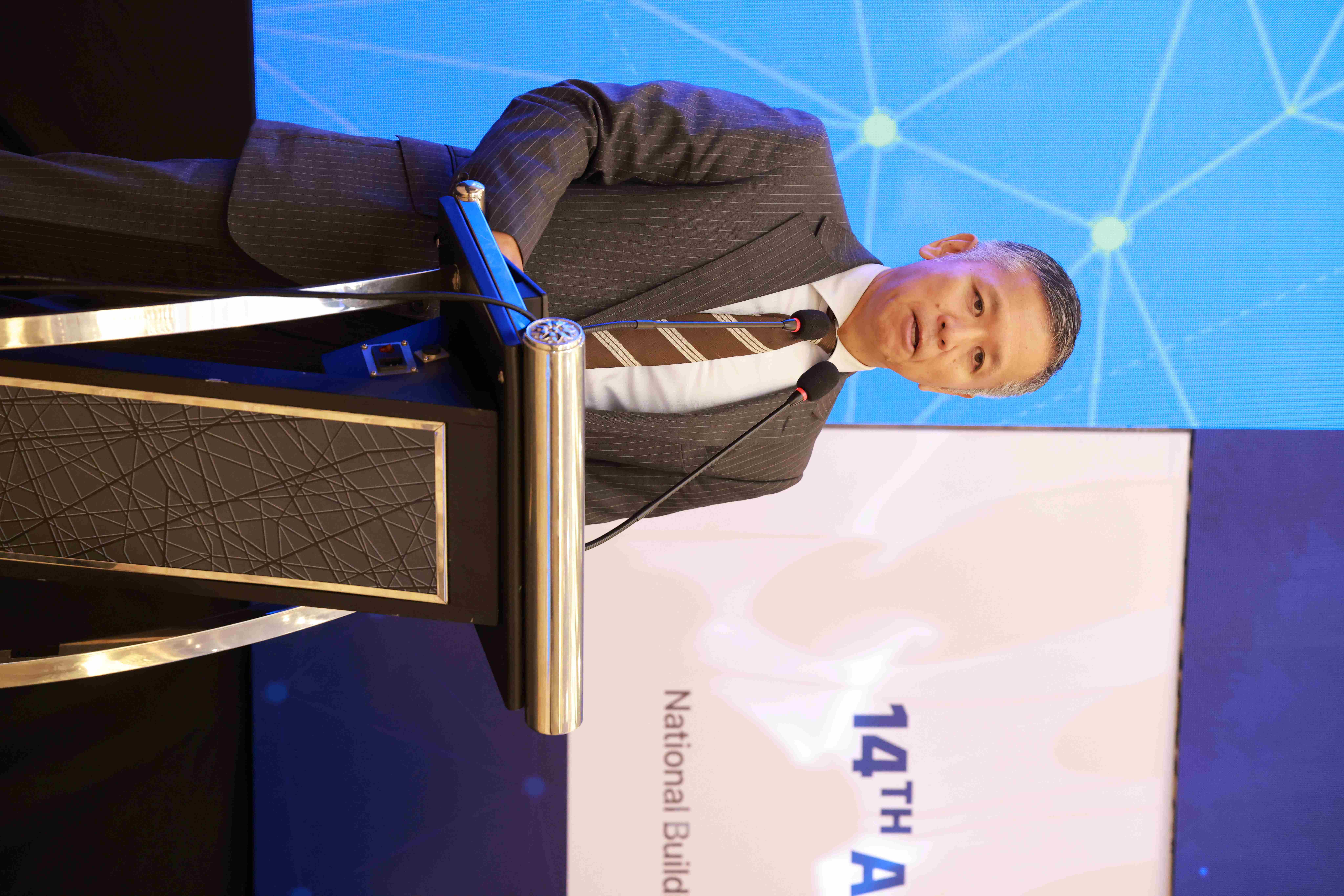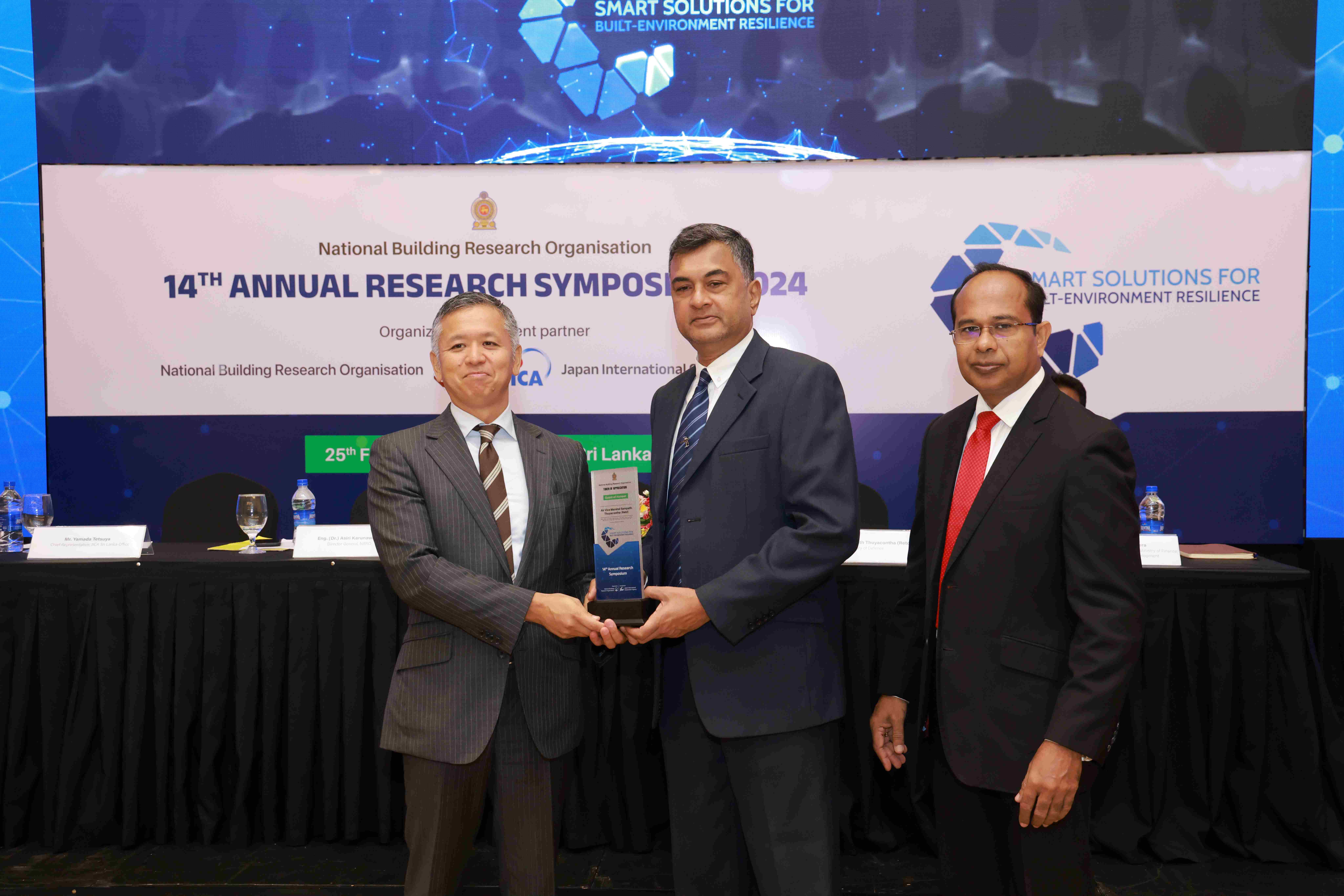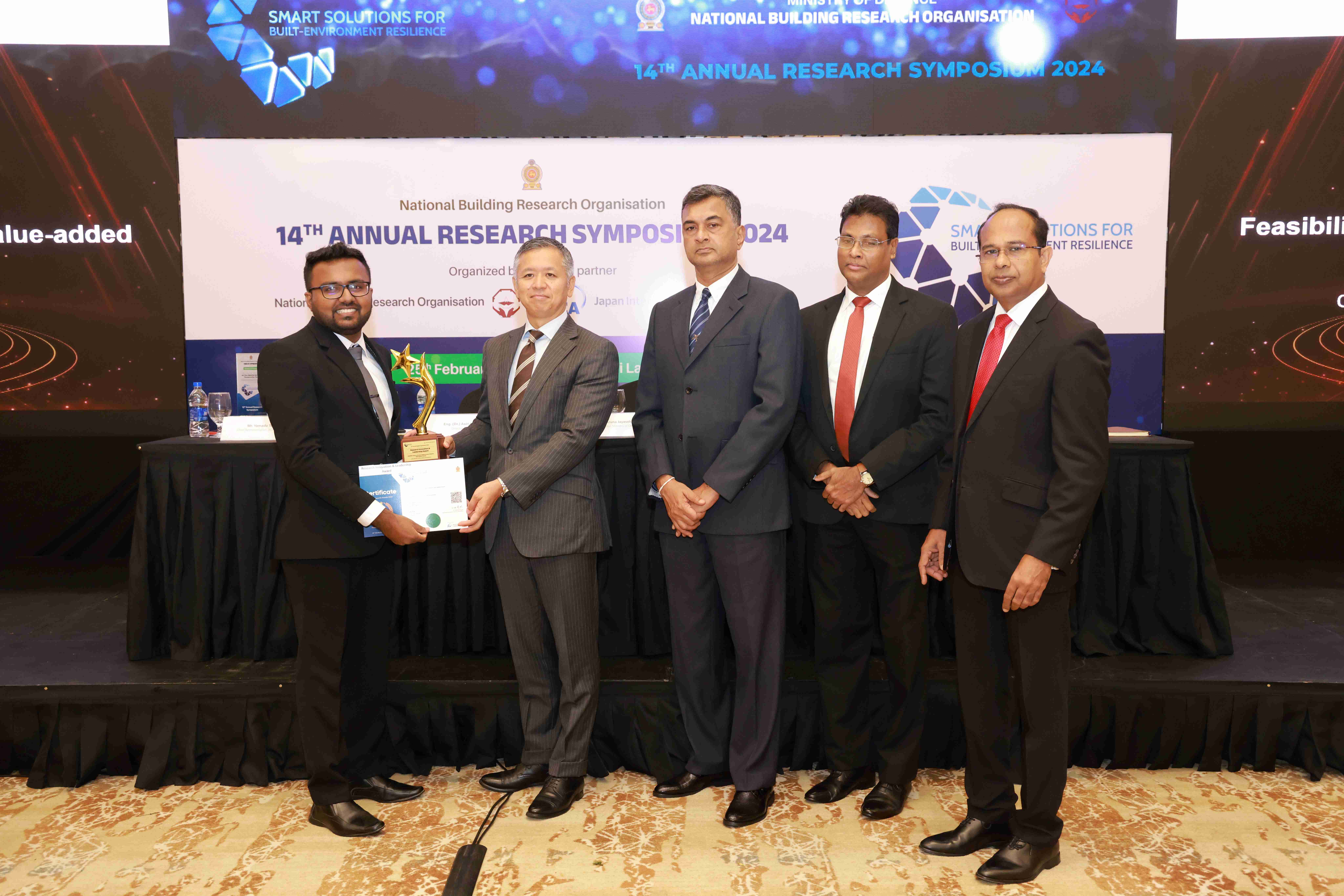“Smart Solutions for Built-Environment Resilience”: 14th Annual Research Symposium of NBRO
2025.03.05
The 14th Annual Research Symposium of the National Building Research Organization (NBRO) was held on February 25, 2025, at the Monarch Imperial Hotel in Sri Jayewardenepura, themed on “Smart Solutions for Built-Environment Resilience.” This year, the symposium validated and approved 35 research papers from NBRO officials.
Distinguished guests at the event included Major General K.P. Aruna Jayasekara (Retd), Hon. Deputy Minister of Defence; Air Vice Marshal Sampath Thuyacontha (Retd), Secretary to the Ministry of Defence; Mr. Ajith Abeysekera, Deputy Secretary to the Treasury, Ministry of Finance, Planning and Economic Development and Mr. Yamada Tetsuya, Chief Representative of JICA Sri Lanka.
The symposium was opened by Eng. (Dr.) Asiri Karunawardena, Director General of NBRO, who delivered the welcome address. He highlighted the history of NBRO since its inception in 1984, detailing its current operations and NBRO’s areas of specializations. Furthermore, he emphasized how past research and initiatives have contributed significantly to the formulation and modification of policies related to Landslide Disaster Risk Reduction (DRR) in Sri Lanka. He also noted the longstanding collaboration with JICA, which has been ongoing for more than two decades, particularly in technical cooperation for landslide DRR in Sri Lanka. This partnership has provided NBRO with valuable technical knowledge from Japan to ensure its continued sustainable function.
Hon. Deputy Minister Major General K. P. Aruna Jayasekara addressed the symposium by emphasizing the importance of the government’s Clean Sri Lanka initiative and digitalization. He stressed that research and innovation are crucial for providing solutions to disasters, including landslide disasters. He commended NBRO for playing a key role in DRR, highlighting its unique position as a research-based institution in Sri Lanka. He also expressed his appreciation for JICA’s support in strengthening the technical capacities of institutions such as NBRO.
Mr. Yamada Tetsuya delivered the guest speech, emphasizing the long-standing and successful partnership between JICA and NBRO. He commemorated Japan’s 70th anniversary of Official Development Assistance (ODA), noting that DRR has been a critical area of international cooperation throughout Japan’s history highlighting several key JICA projects in Sri Lanka, such as the Yen Loan Project for Landslide Disaster Prevention along national roads and the Grant Aid Project to establish a doppler radar network in Puttalam District. Mr. Yamada also drew attention to the increasing impacts of climate change, noting that 2024 was the warmest year on record, and the decade from 2015 to 2024 is the hottest in history as per the information of World Meteorological Organization. This underscores the urgency of addressing climate change within the context of DRR.
He pointed out that the Sendai Framework for DRR outlines four major areas: understanding disaster risk, strengthening disaster risk governance, investing in DRR for resilience, and enhancing disaster preparedness for effective response. He noted that the NBRO’s research symposium contributes to all four areas, showcasing NBRO’s evidence-based scientific initiatives that strengthen Sri Lanka’s DRR efforts. He emphasized the importance of international collaboration in DRR, as disasters are global challenges, and mutual learning through partnerships like that between JICA and NBRO could be enhanced in other countries.
The keynote address was delivered by Mr. Ajith Abeysekera, Deputy Secretary to the Treasury, who discussed "Built-Environment Resilience and Economic Prosperity." He highlighted the importance of adapting to resilience and building capacity to align with resilience goals.
An expert panel discussion followed, focusing on "Smart Solutions for Built-Environment Resilience." The panel was moderated by Prof. Udeni Nawagamuwa from the University of Moratuwa and included Mr. Takafumi Sakurazawa (JICA Sri Lanka), Prof. Tilak Hewawasam (Chairman, Central Environmental Authority), Prof. Narein Perera (Head of Architecture, University of Moratuwa), and Mr. Heminda Jayaweera (Executive Director, TRACE Expert City). The panel shared their knowledge and expertise on the theme of the symposium.
Mr. Sakurazawa presented on the experience of smart solutions for built-environment resilience in Japan. He discussed Japan's legal framework related to landslide DRR, focusing on laws such as the City Planning Act, Real Estate Brokerage Act, Building Standard Act. When asked about the implementation of these legal frameworks, Mr. Sakurazawa explained that in Japan, one ministry oversees all aspects of these issues and coordinates closely with other relevant ministries. He emphasized that in Sri Lanka, a similar approach would require close coordination and collaboration between ministries and institutions, particularly for DRR-related matters.
The symposium featured three specified technical sessions namely, transforming risk assessment with advanced technology chaired by Dr. Dhanushka Jayathilake, innovations for a sustainable environment chaired by Dr. Sanchitha Jayakodi and digital tools for early warning and risk communication chaired by Plnr. Dayan Munasinghe.












scroll